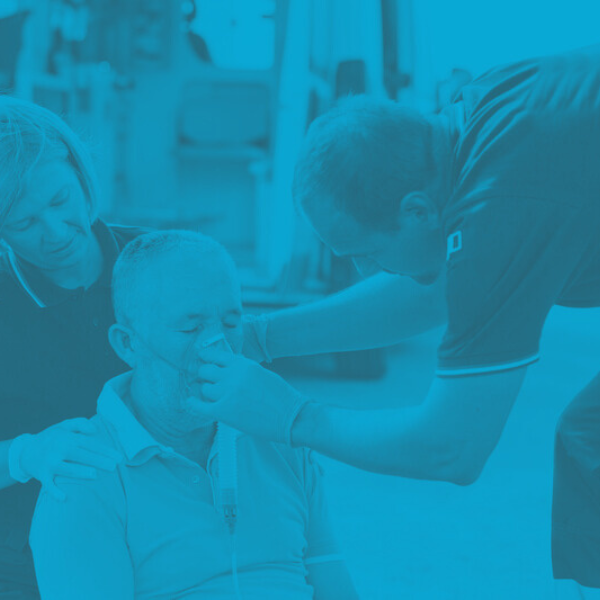When Nurses Need Care: What Is Caregiver Stress Syndrome?
When Nurses Need Care: What Is Caregiver Stress Syndrome?

by Greta Kviklyte
Life Saver, AMC
Co-authored by Kim Murray, RN, M.S.
posted on Feb 12, 2017, at 2:56 pm
MORE THAN 44 MILLION PEOPLE IN THE U.S. ACT AS UNPAID CAREGIVERS FOR LOVED ONES OR FRIENDS, reports the American Association of Nurse Anesthetists (AANA). Although caring for another person without the obligation to pay might seem beneficial and heart-warming, it increases personal health risks.
We offer Online ACLS, PALS and BLS Certification and Renewal
In other words, it increases the risk for caregiver stress syndrome, which may afflict professional health professionals, such as nurses, as well. To help your nursing staff, you need to understand what caregiver stress syndrome is, how to recognize and what steps can be taken to prevent it.

What Is Caregiver Stress Syndrome?
Caregiver stress syndrome is an involuntary reaction to continued elevated stress levels from providing continued care for another person. However, providing care means more than simply providing direct health needs.
For example, assisting with financial responsibilities, providing transportation, doing laundry and preparing meals can be included in care. This means a person is taking time away from personal responsibilities to provide care for others. For nurses, the obligation may be more profound as family members will turn to a health care worker in the family for help. In so doing, nurses may be putting their own health at risk.
How Do You Recognize Caregiver Stress Syndrome?
The signs and symptoms of caregiver stress syndrome may mimic the signs of chronic stress, which include the following:
- Recurring fatigue.
- Anxiety and continuing worrying.
- Insomnia or sleep deprivation.
- Generalized depression, including feelings of sadness or guilt.
- Headaches.
- Changes in dietary habits.
There may also be a darker indicator of caregiver stress syndrome, abusing substances, including illicit and prescription drugs or alcohol, as caregivers look for ways to continue to meet the demands of those in their care.
What Can You Do to Prevent Caregiver Stress Syndrome?
Preventing caregiver stress syndrome is easy, but it does take effort to convince those suffering of their condition. These steps can help you address caregiver stress syndrome.
- Remind caregivers to take time for themselves.
- Encourage caregivers to talk about their feelings, and listen to them.
- Get more family members or friends involved in providing care.
- Encourage healthy ways of managing stress, such as exercising, meditating, engaging in relaxation therapies or simply watching a movie.
- Set a sleep schedule to get a full night’s rest.
- Recognize that you have a right to feel, not just heal.
Putting It All Together.
Caregiver stress syndrome is a real disease. Being someone’s caregiver is rewarding, but it can damage your physical and mental health. Learn how to recognize caregiver stress syndrome today, and act if you suspect yourself, a family member or a friend may be dealing with this illness.
You cannot care for others if you cannot care for yourself.



